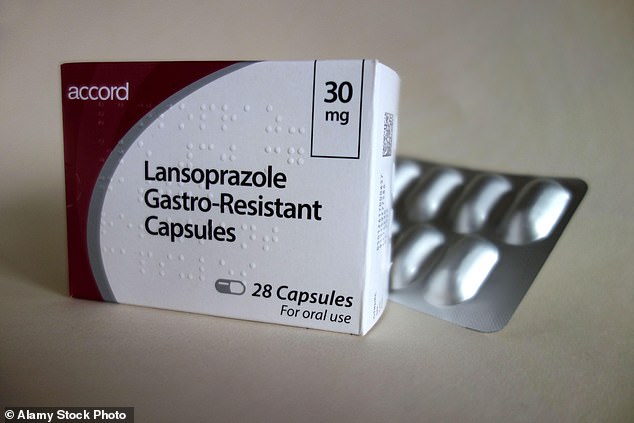I stopped taking lansoprazole for my acid reflux because I’m worried it might cause dementia. I’ve been doing this for five years and recently started having memory problems. I’m 78.
Name and address provided.
Your letter illustrates a common conundrum in medicine: balancing the risks of a treatment with its benefits.
Lansoprazole is a proton pump inhibitor (PPI); These medications reduce stomach acid production, which reduces acid reflux.
On the positive side, the PPI likely relieved the acid reflux, and we know this is important, since repeated exposure to stomach acid can, over time, change the cells lining the esophagus and cause a precancerous condition. known as Barrett’s syndrome. esophagus.
Lansoprazole is a proton pump inhibitor (PPI). These medications reduce stomach acid production, which reduces acid reflux.
However, new research involving analysis of data from nearly two million people published in the Journal of the Alzheimer’s Association has suggested a link between long-term PPI taking and the development of dementia.
When considering stopping PPIs, you should take into account the reason they were prescribed. If it’s just to relieve heartburn, then over-the-counter antacids like Gaviscon may be enough.
I must stress, however, that studies have only found a link between PPIs and dementia; They have not shown that medications cause the condition.
In fact, there are so many factors involved in dementia that simply focusing on one potential one, such as long-term use of lansoprazole, probably won’t do much to prevent the condition.
Additionally, if the medication was prescribed after an endoscopy (in which a small camera is used to inspect the esophagus and stomach), or another test showed that the acid had inflamed or damaged the esophagus, there is reason to continue taking it.
In this scenario, you should take the lowest possible dose that completely suppresses your symptoms. Due to the risk of precancerous changes in the esophagus, I recommend that you reconsider your decision to stop the medications completely.
In the last few months I have lost my voice or my voice becomes strained. Initially this was after doing something strenuous, but now it seems to happen at any time and more frequently. I have asthma, which has been getting worse recently, and I have been taking two types of inhalers.
Nigel Davies, Chester.
What you describe sounds like a chronic form of low-grade laryngitis that affects the vocal cords. This is different than a viral infection and I suspect the problem lies with the asthma inhalers.
One of the inhalers will be a preventer, which delivers a low dose of corticosteroid as an aerosol into the airways.
The problem is whether the steroid is allowed to build up in the tissues at the back of the throat. This can weaken the immune system in the area, causing an overgrowth of the yeast Candida albicans (found naturally in the body) and ending up with throat sores.
That’s why patients are advised to always wash their throat (perhaps drinking a glass of water) after using the inhaler.
In some patients, the steroid leaves residue on the vocal cords. Washing with a drink will not remove the medication from the vocal cords, which are protected by the swallowing mechanism (and which prevents choking).
The only way to eliminate a yeast infection of the vocal cords is with antifungal treatment. A single dose, a 150 mg capsule, of fluconazole should clear it up within a few days. The treatment may need to be repeated after a few months, as continuing on the inhalers means you are still susceptible to the yeast infection coming back.

